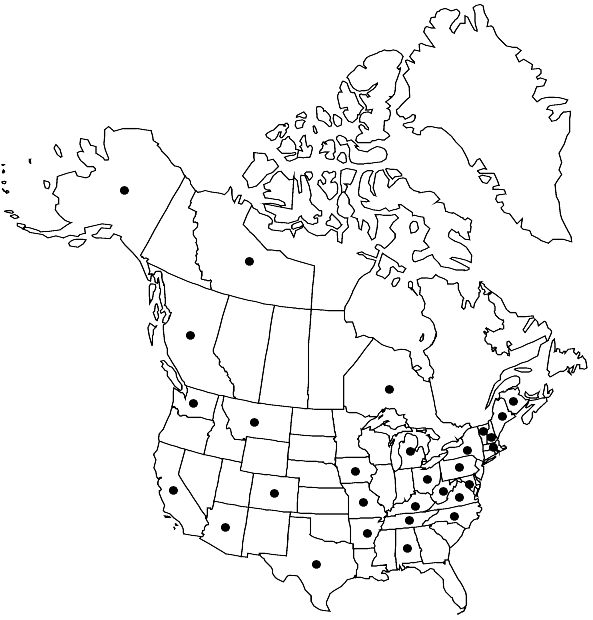Difference between revisions of "Trichostomum tenuirostre var. tenuirostre"
FNA>Volume Importer |
FNA>Volume Importer |
||
| Line 7: | Line 7: | ||
|name=Barbula wollei | |name=Barbula wollei | ||
|authority=Austin | |authority=Austin | ||
| − | }}{{Treatment/ID/Synonym | + | }} {{Treatment/ID/Synonym |
|name=Didymodon wollei | |name=Didymodon wollei | ||
|authority=(Austin) Austin | |authority=(Austin) Austin | ||
| − | }}{{Treatment/ID/Synonym | + | }} {{Treatment/ID/Synonym |
|name=Oxystegus cylindricus | |name=Oxystegus cylindricus | ||
|authority=(Bridel) Hilpert | |authority=(Bridel) Hilpert | ||
| − | }}{{Treatment/ID/Synonym | + | }} {{Treatment/ID/Synonym |
|name=Trichostomum cylindricum | |name=Trichostomum cylindricum | ||
|authority=(Bridel) Müller Hal. | |authority=(Bridel) Müller Hal. | ||
| Line 32: | Line 32: | ||
|distribution=B.C.;N.B.;N.W.T.;Ont.;Ala.;Alaska;Ariz.;Ark.;Calif.;Colo.;Iowa;Ky.;Maine;Md.;Mass.;Mich.;Mo.;Mont.;N.H.;N.Y.;N.C.;Ohio;Pa.;Tenn.;Tex.;Vt.;Va.;Wash.;W.Va.;Mexico;West Indies;Central America;South America;Arctic;Eurasia;Africa;Indian Ocean Islands;Pacific Islands (Hawaii;New Zealand);Australia. | |distribution=B.C.;N.B.;N.W.T.;Ont.;Ala.;Alaska;Ariz.;Ark.;Calif.;Colo.;Iowa;Ky.;Maine;Md.;Mass.;Mich.;Mo.;Mont.;N.H.;N.Y.;N.C.;Ohio;Pa.;Tenn.;Tex.;Vt.;Va.;Wash.;W.Va.;Mexico;West Indies;Central America;South America;Arctic;Eurasia;Africa;Indian Ocean Islands;Pacific Islands (Hawaii;New Zealand);Australia. | ||
|discussion=<p>Gemmae absent.</p><!-- | |discussion=<p>Gemmae absent.</p><!-- | ||
| − | --><p>H. A. Crum and L. E. Anderson (1958) detailed the abundant variation between specimens with very narrow, often fragile (W. C. Steere 1978) leaves and those with comparatively broad leaves, the latter commonly identified in herbaria as var. holtii (Braithwaite) Dixon. Variety tenuirostre often has a thin line of hyaline cells running up each leaf margin from the differentiated proximal cells, but this is largely of a single row of cells rather than a distinctly tapering broad wing of a V. Although the Mexican type of Trichostomum mollissimum (Brotherus) H. A. Crum is Pseudosymblepharis schimperiana (Paris) H. A. Crum with typical bushy, crowded linear-lanceolate leaves, specimens from the range of the flora previously identified under the former name are T. tenuirostre. Trichostomum tenuirostre, T. spirale, and T. recurvifolium share a similar areolation by the leaves with a band of rather thick-walled rectangular cells between the thinner walled basal cells and the distal medial cells.</p> | + | --><p>H. A. Crum and L. E. Anderson (1958) detailed the abundant variation between specimens with very narrow, often fragile (W. C. Steere 1978) leaves and those with comparatively broad leaves, the latter commonly identified in herbaria as var. holtii (Braithwaite) Dixon. Variety tenuirostre often has a thin line of hyaline cells running up each leaf margin from the differentiated proximal cells, but this is largely of a single row of cells rather than a distinctly tapering broad wing of a V. Although the Mexican type of <i>Trichostomum</i> mollissimum (Brotherus) H. A. Crum is Pseudosymblepharis schimperiana (Paris) H. A. Crum with typical bushy, crowded linear-lanceolate leaves, specimens from the range of the flora previously identified under the former name are <i>T. tenuirostre</i>. <i>Trichostomum tenuirostre</i>, <i>T. spirale</i>, and <i>T. recurvifolium</i> share a similar areolation by the leaves with a band of rather thick-walled rectangular cells between the thinner walled basal cells and the distal medial cells.</p> |
|tables= | |tables= | ||
|references= | |references= | ||
| Line 56: | Line 56: | ||
|publication year= | |publication year= | ||
|special status= | |special status= | ||
| − | |source xml=https://jpend@bitbucket.org/aafc-mbb/fna-data-curation.git/src/ | + | |source xml=https://jpend@bitbucket.org/aafc-mbb/fna-data-curation.git/src/8f726806613d60c220dc4493de13607dd3150896/coarse_grained_fna_xml/V27/V27_710.xml |
|subfamily=Pottiaceae subfam. Trichostomoideae | |subfamily=Pottiaceae subfam. Trichostomoideae | ||
|genus=Trichostomum | |genus=Trichostomum | ||
Revision as of 16:56, 18 September 2019
Capsules mature fall.
Phenology: Capsules mature fall.
Habitat: Soil, sandstone, calcareous rock, bluffs, boulders, under overhanging ledges, seepage areas, logs
Elevation: low to high elevations (0-2300 m)
Distribution

B.C., N.B., N.W.T., Ont., Ala., Alaska, Ariz., Ark., Calif., Colo., Iowa, Ky., Maine, Md., Mass., Mich., Mo., Mont., N.H., N.Y., N.C., Ohio, Pa., Tenn., Tex., Vt., Va., Wash., W.Va., Mexico, West Indies, Central America, South America, Arctic, Eurasia, Africa, Indian Ocean Islands, Pacific Islands (Hawaii, New Zealand), Australia.
Discussion
Gemmae absent.
H. A. Crum and L. E. Anderson (1958) detailed the abundant variation between specimens with very narrow, often fragile (W. C. Steere 1978) leaves and those with comparatively broad leaves, the latter commonly identified in herbaria as var. holtii (Braithwaite) Dixon. Variety tenuirostre often has a thin line of hyaline cells running up each leaf margin from the differentiated proximal cells, but this is largely of a single row of cells rather than a distinctly tapering broad wing of a V. Although the Mexican type of Trichostomum mollissimum (Brotherus) H. A. Crum is Pseudosymblepharis schimperiana (Paris) H. A. Crum with typical bushy, crowded linear-lanceolate leaves, specimens from the range of the flora previously identified under the former name are T. tenuirostre. Trichostomum tenuirostre, T. spirale, and T. recurvifolium share a similar areolation by the leaves with a band of rather thick-walled rectangular cells between the thinner walled basal cells and the distal medial cells.
Selected References
None.